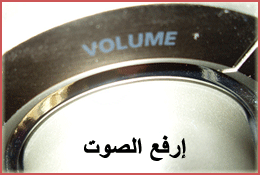-
 ramina saysThu 2nd Oct 08@02:20 amDoesn't mumill mean boring?
ramina saysThu 2nd Oct 08@02:20 amDoesn't mumill mean boring? -
Yes, (ممل - mumel) means boring, it is more classical, while (6afash - طفش) is more colloquial.
-
A native speaker of English would never use the word "boring" here. "Boring" means "causing boredom", and boredom is a state of weary restlessness caused by a lack of interest. Thus, for instance, people feel bored when they have nothing to do.
In the case under discussion, "tafash" is an interjection expressing exasperation, and "boring" never means "exasperating" and is never used as an interjection. In English one could say "I'm fed up with it" or "I'm fed up to the back teeth." -
Very interesting comment, Desmond. I have never come across the expression "I'm fed up to the back teeth", but I do know (and occasionally use) "I'm fed up to my eyeballs/eyebrows" or "fed up to here". However, I must say that teenagers do like using "boring" in the very context described in this lesson, as I have heard repeatedly from my own kids ;-). I suppose it's a generation "thing" ...
-
I've just run a few Google searches. Judging by the results, "fed up to here", "fed up to one's eyeballs", "fed up to one's eyebrows" and "fed up to the back teeth" are all in current use.
The use of "boring" as an interjection may be a very recent phenomenon. In this instance a Google search would be pointless since "boring" is a high-frequency item with several meanings (including "making a long deep hole with a tool"). It would take weeks to sift through all the search results and ascertain the meaning of each word.
The use of "boring" as an interjection has not been recorded in the Oxford Advanced Learner's Dictionary. I wonder if it has attracted the attention of linguists who study teenage slang.
Words often undergo bizarre semantic shifts in the language spoken by adolescents. Characteristic examples are provided by the German words "geil" and "ätzend", which acquired completely new meanings in the early 1980's. I wouldn't be surprised if Arabic teenage slang displayed the same features as English and German slang. -
السلام عليكم،
Very nice lesson as usual, many useful expressions. جزاكم الله خيرا.
By the way, in another beginner lesson, studying in the dark, there was a phrase: شعل الضوء ،من فضلك.
I googled both and it says: شعل(lit)
شغل(turn on)
So, they are completely different words?
Thanks in advance.:-) -
Well, literally the word (sha3el شعل) comes from (shu3lah شعلة) which is a flame, so when you use the verb (sha3el شعل) you actually say (light up..).
On the other hand, the order (sha3'el شغل) means (make it work!) and it comes from (shu3'l شغل) which is (work or job), so when you say (Sha3'el ..شغل) then you are saying (make the device work..).
Hope you can link this to what you already know. -
@إيهاب
شكرا جزيلا,فهمت جدا. :) -
!oops, I should have said, فهمت كثيرا.
Beginner - Changing the volume
| September 26th, 2008 | 9 comments |
Sit back, relax, turn up your speakers and tune in to another ArabicPod lesson coming straight to your pockets! In this lesson you'll learn how to tell someone "Turn it up!". Careful not to upset the neighbours though (like the guys in the dialogue) or you may receive some angry complaints!
 MP3 Download MP3 Download
|
 PDF Transcript PDF Transcript
|
 Audio Transcript Audio Transcript
 Exercise Exercise
|
| Free | Basic | Premium |
|---|
Join the Discussion

Like this on facebook!

Random Word
ألم |
|

Advertisement

